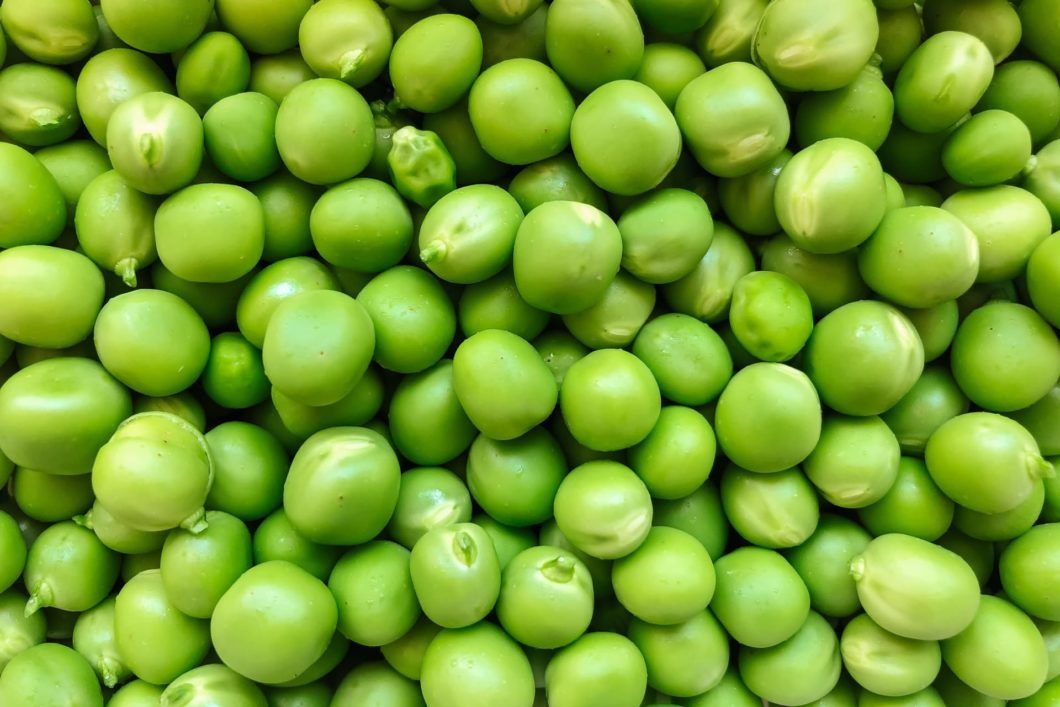The onrush of plant-based food
Product development • Plant-based food is no longer a niche product. Instead, it is becoming mainstream as more and more people becoming flexitarians. There are now incentives for food producers to invest in plant-based foods.
Recently, we hear more and more of ingredients, dishes and foods that are plant-based. But what does that mean and why is this happening now? And what does the future hold for plant-based food – is this just the beginning?
What is plant-based?
When referring to plant-based food, one can mean different things. On the one hand, it can be a diet that mainly consists of non-animal food that instead of meat consists of plants of different sorts. These can be, for example, vegetables, fruits, legumes, groats, nuts and seeds.
But more and more have come to be about new types of products that are plant-based. Milk made from oats or different kinds of nuts has been around for a number of years, as well as soy-based yoghurt and cream.

Why is it happening now?
Fair enough, there have been vegetarian and vegan alternatives for a long time now. For example, tofu which is a product made from soybeans or Quorn which is a protein produced via fermentation.
But these have been niche products, specifically targeted at vegetarians and vegans. These consumers have more or less had to accept a mediocre taste and mouthfeel. There has simply not been enough investment in research and development as the segment has been too small to be profitable.
But that is changing.
Flexitarians
More and more people turn to plant-based foods, which should not be interpreted as everyone suddenly becoming a vegetarian or vegan. Instead, more and more people choose to eat more plant-based and reduce their meat consumption without entirely quitting eating meat. They simply eat a little of each. These consumers are known as flexitarians. This is a large and rapidly growing group of consumers. This growing segment is closely linked to more people wanting to make a contribution to the climate and the environment; it affects what you put on the plate. Health is however also an important factor.
Creating incentives
The growing group of flexitarians is also creating financial incentives for food producers to invest in research and development of plant-based foods. The challenge is to improve taste and mouthfeel, but it’s also about breaking new ground and coming up with new products. Therefore, we now see a lot of startups both in Europe and in other parts of the world who want to enter this market.
Plant-based innovation
Perhaps the best-known example of plant-based innovation is plant-based meat. With the use of peas and mung beans, among other ingredients, the American food producer Beyond Meat has created plant-based burgers, sausages and meatballs. To provide the right colour, beets are used and the juiciness comes from coconut oil and potato starch.
But it’s not only on the meat front that we see this type of innovation. The latest thing is the quest for high-quality plant-based fish.
Plant-based fish
The Swiss company Givaudan, in collaboration with the University of California, has investigated the market and possibilities for plant-based fish.
According to Givaudan, the fishing industry is affected by the same macro trends as the meat industry. These trends are, not surprisingly, about climate change and care and concern about the earth’s resources. But there are also specific factors that are typical of the fishing industry in particular, such as overfishing and high levels of mercury. This has created a demand for plant-based fish.
Common protein sources for making plant-based fish are soy, but also peas and protein from wheat. Chickpeas, lentils and flax seeds can also be used.
What does the future hold?
The market for plant-based food looks bright. In an article by Food News International, the market analysis company BIS Research predicts that the sector will have a turnover of 480 billion dollars in 2024 with an average annual growth of almost 14 per cent between 2019 and 2024.
The ingredient company DuPont has conducted a survey of more than a thousand American consumers. Just over half of the respondents said they consume more plant-based foods. Almost 60 per cent of the respondents said that their newfound plant-based diet was permanent or that they hoped it would be.
This video clip from DuPont explains why herbal foods are not just about meat and burgers.
A seismic shift
Greg Paul, Marketing Manager at DuPont Nutrition & Health, claims that we are facing a seismic shift when it comes to eating habits globally. The plant-based food is no longer an ‘experiment’ but a permanent change that comes from changes in health, lifestyle and social factors, says Greg Paul.
At the time of writing, the European Parliament voted in favour of continuing to call plant-based burgers and minced meat veggie/vegan burgers, respectively vegan minced meat; a milestone in the progress of plant-based foods.
The plant Chicory with its beautiful blue flowers. Chicory grows wild throughout Europe and from its roots, you can extract the dietary fibre inulin.
Plant-based sugar reduction
What about plant-based sugar reduction, then? Does it exist?
Yes, for example, our own sweetened fibres which is a 1: 1 solution for sugar reduction. All ingredients in sweetened fibres originate from the plant kingdom.
The fibres are extracted from plants (for example inulin) or produced from starch (for example dextrin, isomaltooligosaccharides and polydextrose), which in turn come from potatoes, wheat, corn, cassava and other starch-rich crops.
Starch also produces sugar alcohols, which are another key ingredient in sweetened fibres. Here we find, for example, maltitol, sorbitol and erythritol.
To get proper sweetness, we use steviol glycosides that are extracted from the stevia plant.
Read more!
If you want to know more about sugar reduction, different ingredients, pros and cons, interesting curiosities and much more, we can recommend these article series:
Please, share this article if you liked it.
[et_social_share]







